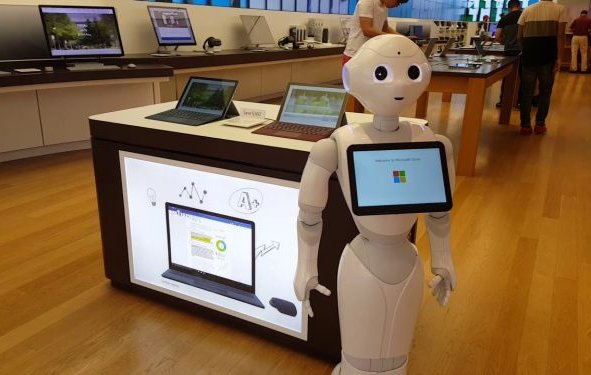LAGOS, Nigeria — Nigeria is rapidly positioning itself to become a global powerhouse in artificial intelligence, according to Abideen Yusuf, General Manager of Microsoft Nigeria and Ghana. In a recent interview in Lagos, Yusuf emphasized the country’s potential to transition from merely consuming AI technologies to becoming a key producer and innovator in the field.
Yusuf highlighted that artificial intelligence could contribute more than $15 trillion to the global economy by 2030, presenting a golden opportunity for Nigeria to tap into this vast potential. With Lagos emerging as one of Africa’s fastest-growing tech hubs, supported by an expanding startup ecosystem and rising venture capital inflows, Nigeria already has a strong foundation for AI innovation.
However, Yusuf stressed that true progress would require making AI tools and infrastructure widely accessible across the nation. He outlined a dual strategy focused on building a strong AI ecosystem and cultivating a skilled, AI-ready workforce. He pointed to investments by Microsoft, including the development of Africa’s first datacentres and Edge Nodes in Nigeria, as part of efforts to boost connectivity and expand access to cloud services. These initiatives, he said, are critical to enabling the country to develop sophisticated AI models and drive widespread innovation.
Yusuf also underscored the role of partnerships between the public and private sectors in scaling advanced infrastructure and fostering a data-driven economy. He praised the Nigerian government’s commitment to digital transformation through initiatives such as the 3 Million Technical Talent (3MTT) program, which aims to generate two million digital jobs.
A key advantage, Yusuf noted, is Nigeria’s youthful population. With Africa expected to account for 42% of the world’s youth by 2030, the country has a unique demographic edge. Empowering this generation with digital and AI skills, he said, is crucial to unlocking Nigeria’s full potential.
Yusuf commended ongoing collaborations with organizations like the Wootlab Foundation, which is playing a pivotal role in launching AI-focused training initiatives. These programs are aimed at equipping young Nigerians with practical, industry-relevant skills that will prepare them to compete on the global stage.
Nigeria’s AI journey, Yusuf concluded, is no longer a distant vision it is a tangible goal within reach. With the right investments, infrastructure, and human capital development, the country is set not just to catch up, but to lead in shaping the future of artificial intelligence.
